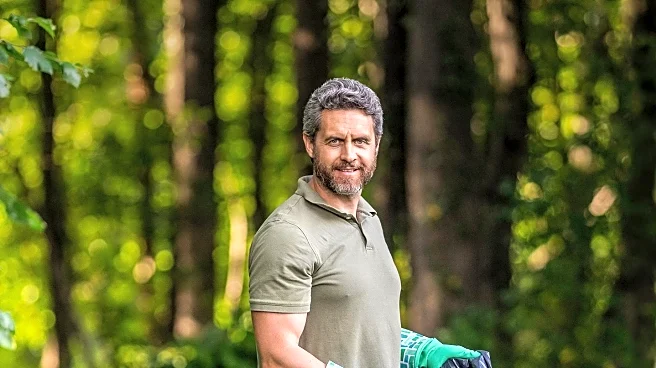What's Happening?
A recent study published in Social Science & Medicine has found that volunteering or offering informal help for two to four hours a week can reduce age-related cognitive decline by 15 to 20 percent. The
research, conducted by Sae Hwang Han, PhD, from The University of Texas at Austin, analyzed data from over 30,000 U.S. adults. The study suggests that engaging in activities that provide social connection and cognitive stimulation can protect against cognitive aging. Volunteering in person, such as helping at a soup kitchen or reading to children, is particularly beneficial due to the social and psychological rewards it offers.
Why It's Important?
This study underscores the importance of social engagement and community involvement in maintaining cognitive health as individuals age. By highlighting the cognitive benefits of volunteering, the research encourages people to participate in community service, which not only aids personal health but also strengthens societal bonds. The findings could influence public health policies and initiatives aimed at promoting volunteerism as a means to enhance mental health and well-being among older adults. Additionally, the study provides valuable insights for healthcare professionals advising patients on lifestyle changes to support cognitive health.
What's Next?
The study's findings may lead to increased advocacy for volunteer programs targeting older adults, with potential support from government and non-profit organizations. Healthcare providers might incorporate volunteering recommendations into patient care plans, emphasizing its role in cognitive health maintenance. Community centers and organizations could expand volunteer opportunities, making them more accessible to seniors. Further research may explore the specific types of volunteer activities that offer the greatest cognitive benefits, potentially leading to tailored programs that maximize health outcomes.
Beyond the Headlines
The study highlights the broader implications of social engagement on mental health, suggesting that fostering community connections can be a powerful tool in combating cognitive decline. This perspective may influence cultural attitudes towards aging, encouraging a more active and socially integrated lifestyle for seniors. Additionally, the research opens discussions on the ethical considerations of promoting volunteerism, ensuring that opportunities are inclusive and accessible to all individuals, regardless of socioeconomic status or physical ability.










